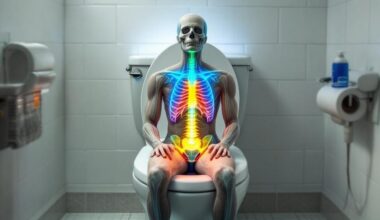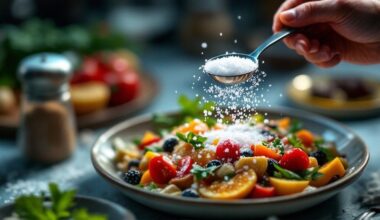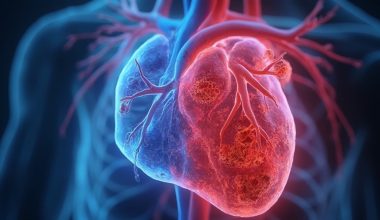A product that claims to revive the brain after alcohol examines mechanisms of dehydration, nutrient depletion, oxidative stress, and neurotransmitter imbalance. It questions which combinations of hydration, targeted B‑vitamins, antioxidants, amino acids, and lipids can meaningfully shorten cognitive recovery time. Clinical plausibility and safety are weighed against marketing promises, leaving open what evidence and protocols would truly support effective, rapid neural restoration.
How Alcohol Impairs Brain Function and Recovery Mechanisms
Alcohol disrupts brain structure and function through a convergence of neurotoxic processes that undermine cognition and the capacity for recovery.
How do widespread shrinkage and neuronal loss, particularly hippocampal granule cell decline, translate into memory and learning deficits? What roles do neuroinflammation, microglial activation, proinflammatory cytokines, oxidative stress, and signaling cascades (NF-κB, MAPKs) play in synaptic dysfunction and cell death? How does repeated bingeing and kindling enhance withdrawal hyperexcitability and excitotoxicity, degrading cognitive and emotional control? Although recovery mechanisms—neurogenesis, synaptic plasticity, glial and vascular repair—exist, their efficacy depends on nutrition, medical management, and targeted interventions.
Key Ingredients That Support Post-Alcohol Cerebral Repair
Several classes of nutrients and bioactive compounds appear to accelerate cerebral recovery after heavy alcohol exposure by targeting metabolic deficits, oxidative damage, inflammation, and impaired neuroplasticity. Which specific ingredients merit attention?
Thiamine is essential given frequent deficiency and its role in neuronal metabolism and Wernicke–Korsakoff prevention. Omega‑3s (EPA/DHA) reduce neuroinflammation and support synaptic repair in models.
Essential and branched‑chain amino acids plus B6, B12, and folate facilitate neurotransmitter synthesis and remyelination. Antioxidants and anti‑inflammatories (N‑acetylcysteine, vitamins C and E, polyphenols) mitigate oxidative stress and microglial activation.
Neurotrophic enhancers that elevate BDNF/IGF‑1 promote hippocampal neurogenesis and plasticity.
Role of Hydration and B-Vitamins in Restoring Cognitive Clarity
With dehydration and disrupted micronutrient status both implicated in post‑drinking cognitive fog, how effectively can rehydration and B‑vitamin repletion restore clarity?
Evidence suggests restoring fluid balance—500–1000 mL water with electrolytes or oral rehydration solutions—reduces brain volume loss and improves neurotransmission within hours, easing alertness.
Concurrently, replenishing B‑complex vitamins, particularly thiamine, B6 and B12, supports neuronal metabolism, myelin integrity and neurotransmitter synthesis; therapeutic thiamine is essential when deficiency or high risk exists.
These measures accelerate symptomatic recovery of attention and memory but do not reverse structural damage from chronic heavy drinking.
Antioxidants and Amino Acids: Protecting Neurons From Oxidative Damage
Beyond restoring fluids and B‑vitamins, attention turns to biochemical defenses that counteract alcohol‑induced oxidative injury. Could antioxidants and amino acids meaningfully protect neurons after ethanol exposure?
Preclinical data show ROS and NF‑κB–mediated inflammation promote apoptosis, while vitamins C and E reduce lipid peroxidation. NAC, as a cysteine donor, replenishes glutathione and lowers oxidative damage and neuroinflammation in animal models.
Taurine and glycine offer neuroprotection through calcium, mitochondrial modulation, and NMDA/glycine receptor–mediated excitotoxicity reduction. Supplementation may also aid neurotransmitter balance and thiamine‑dependent metabolism, yet rigorous human trials documenting cognitive or structural recovery remain limited.
Complementary Behavioral Strategies to Enhance Brain Recovery
Framed as adjuncts to medical and nutritional interventions, behavioral strategies ask which daily routines most effectively accelerate neural repair after alcohol exposure.
Evidence suggests regular aerobic exercise (30–60 minutes most days) elevates BDNF and IGF‑I, aiding hippocampal neurogenesis and plasticity.
Consistent sleep hygiene—fixed schedules, dark/cool rooms, no screens before bed—supports memory consolidation and toxin clearance.
Adequate nutrition with thiamine where indicated, antioxidants, omega‑3s, and protein counters oxidative stress and lowers Wernicke–Korsakoff risk.
Structured behavioral activation provides alcohol‑free reward and reduces relapse.
Gradual tapering or supervised detox avoids withdrawal kindling that impairs long‑term cognitive recovery.
Evidence, Safety Considerations, and Practical Use Guidelines
The evidence for interventions that restore brain function after alcohol exposure is mixed and evolving: which strategies reliably improve cognitive outcomes, to what extent structural damage can be reversed, and under what clinical circumstances remain open questions.
Clinical data support prompt thiamine for suspected deficiency or heavy use to prevent Wernicke–Korsakoff.
Regular aerobic exercise shows preclinical and some clinical cognitive and mood benefits via neurotrophic effects.
Nutritional optimization, liver disease management, and antioxidant/anti‑inflammatory approaches are plausible adjuncts but lack definitive proof.
Safety guidance emphasizes medical assessment for withdrawal and deficiencies, skepticism toward marketed “revive” supplements, and integrated supervised care.







